Adam Lallana may leave Liverpool to muted fanfare this summer, but his departure will see Jurgen Klopp bid farewell to his first defining player.
The race is on. Not the title race, which is more of a procession. But, seemingly, the race for the services of the man who kept Liverpool undefeated but has otherwise been outgrown by a champion team.
Adam Lallana was the first quintessential Klopp player in Jurgen Klopp’s Liverpool side, the one who personified his pressing game and capacity to improve individuals even before Roberto Firmino was tried as a false nine, but they have upgraded even while he remained at Anfield.
The sense is that Lallana will have to drop down a little in the search for first-team football.
He is apparently of interest to Leicester and Arsenal, which make sense as Brendan Rodgers signed him for Liverpool and Mikel Arteta is expected to espouse technical talent, and Tottenham, which makes altogether less as Jose Mourinho is the manager and they have acquired Steven Bergwijn, Giovani Lo Celso, Tanguy Ndombele and Ryan Sessegnon in the last two transfer windows: none is exactly a Lallana clone but each could take up a position he may covet.
Either way, it could be ‘adios, Adam’ to England’s Spanish-style footballer, the Evertonian who, for the best part of two seasons, was terrific for Liverpool, and to the man who produced possibly the rustiest performance seen in a Champions League final.

It was scarcely Lallana’s fault that, when he was semi-fit, the squad was already depleted and then Sergio Ramos curtailed Mohamed Salah’s night in Kyiv. It is an understatement to say he was off the pace.
If Liverpool have accelerated beyond Lallana, then it feels a combination of two factors: his injuries and their improvement. His six years at Anfield represents a time of collective regression followed by remarkable progression and, personally, a slow start and a long end, with excellence in between.
He will go with an unofficial club record for Cruyff turns and, perhaps, more admirers on the coaching and playing staff than in the fanbase—though his detractors should note his high-profile admirers include Klopp, Rodgers, Mauricio Pochettino and Gareth Southgate—but his impact in the German’s first 20 months should not be forgotten.
Signed with the proceeds of Luis Suarez’s sale, Lallana’s initially underwhelming efforts were part of the subplot of the unravelling of Rodgers’ reign. Like Emre Can and Dejan Lovren, other 2014 arrivals, he justified his recruitment, but not initially.

It is never a good sign when a Liverpool player is substituted twice at half-time against Man United in the same season or when a major attack-minded signing failed to register a goal against top-seven finishers.
Within that, however, there was a glimpse of encouragement: his better displays came when Rodgers played 3-4-2-1, looking for something more fluid with likeminded players.
Klopp arrived in October 2015 and immediately announced: “I know him from Southampton and he can do 20, 30 percent more.” He ensured he did.
Lallana understood a new ethos. He delivered the 95th-minute winner in the ludicrous 5-4 at Norwich, with unfortunate consequences for Klopp’s glasses. He scored against Man City and Villarreal, ending the wait for the big-game goals that had eluded him. And then he was a key component in the first viscerally exciting, bona fide Klopp team.
Go back three-and-a-half years and it can feel strange that the so-called Fab Four features one whose exit actually enhanced Liverpool, in Philippe Coutinho, and another who may not make the bench if everyone is fit now: Lallana.

But he was a talismanic presence then alongside Coutinho, Firmino and Sadio Mane. Liverpool won 11 of his first 14 league starts in 2016/17; now, of course, they routinely win more than that, but then it showed improvement, marked by blistering attacking.
Injury in August 2017 allowed Coutinho to take the spot as the most attacking midfielder; when the Brazilian went, there was a recalibration. Klopp’s preference became for the solidity of Gini Wijnaldum, James Milner and Jordan Henderson, before Fabinho’s emergence removed the veteran from the strongest side.
While Lallana was luckless the midfield evolved, with a different profile of player. And now he is fit, there are three fresher, faster alternatives.
It may seem to reflect badly on a departing footballer when there is no need to replace him. In Lallana’s case, however, it should be a reflection of the quality of Liverpool’s options.
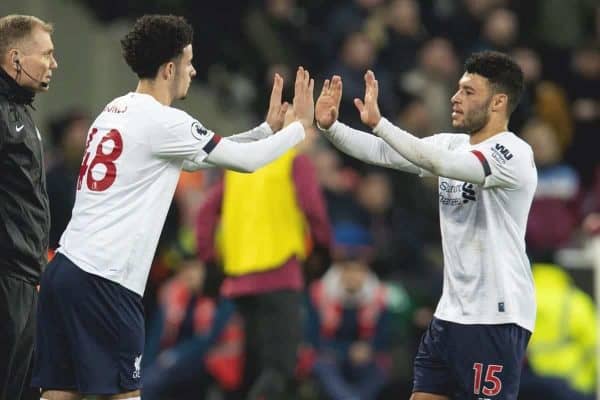
Naby Keita can represent unrealised potential, but games when he does perform—such as the Club World Cup semi-final against Monterrey—show his quality.
Alex Oxlade-Chamberlain can feel the best fit for the best position, a player who has hinted he can recapture the sensational form he was in when he was injured in the 2018 Champions League semi-final (leading, indirectly, to Lallana’s final appearance).
The precocious Curtis Jones has shown signs he could be special and while Lallana was excellent for the reserve team who beat Everton in the FA Cup, the teenager was the audacious match-winner.
Him, Keita and Oxlade-Chamberlain are all likelier scorers than Lallana now and it is a valid criticism that even at his peak he never scored 10 league goals in a season.
There has been a solitary strike in the stop-start second half of his Anfield career; but it was at Old Trafford, and without that Liverpool would not have gone unbeaten in the Premier League for a year.
But standards have been raised to such a level that he has become dispensable. Pre-season was notable for Klopp’s attempts to reinvent Lallana as a No. 6, an Anfield Andrea Pirlo. But when Fabinho was injured, his close friend Henderson took over the defensive midfielder’s duties with such authority and excellence that the experiment with Lallana was confined to lesser games.
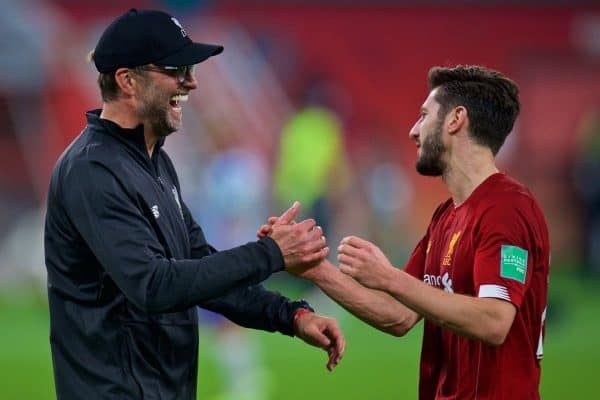
With a younger trio available to offer more drive, pace and goals as the most advanced No. 8, Lallana has become a victim of Liverpool’s success. But for two seasons at the start of Klopp’s era, he was a facilitator of it, helping to get them to a European final and into the Champions League.
A £25 million signing may go on a free transfer in the summer, but Liverpool profited from the time when Lallana looked a true Klopp player.
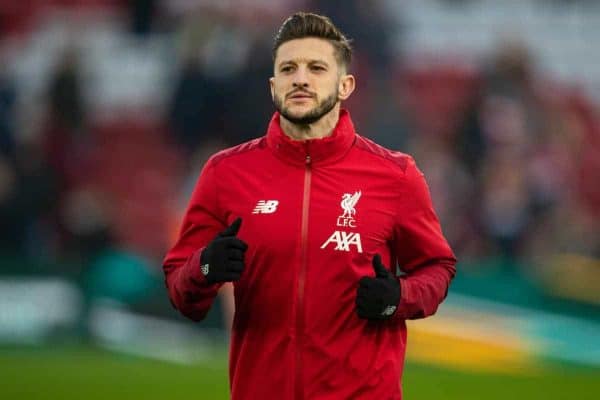



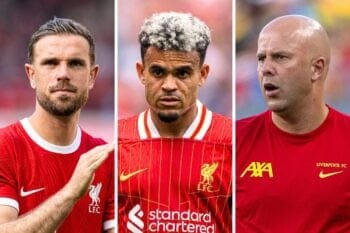
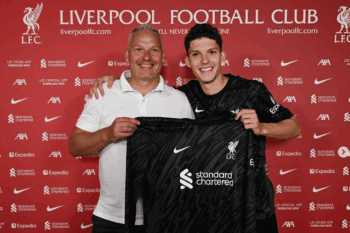






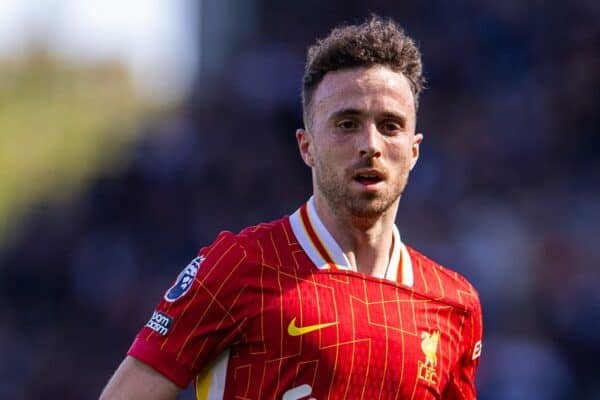
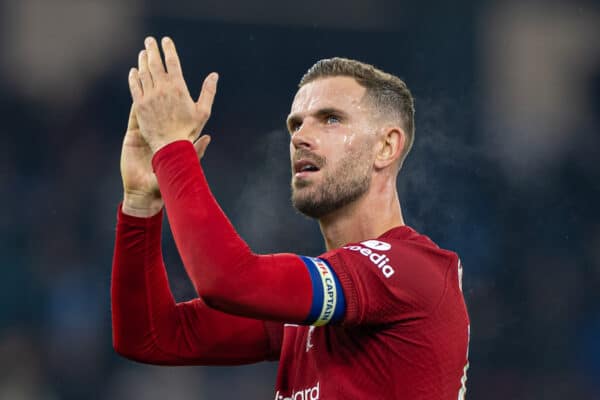



Fan Comments